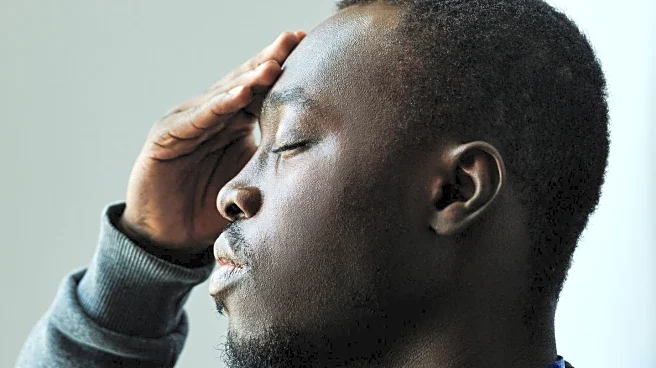What's Happening?
The Nigerian Correctional Service (NCoS) has raised concerns over the insufficient number of medical personnel available to treat 8,246 inmates with mental health issues across the country. During a public hearing in Abuja, Dr. Glory Essien, Assistant Controller General of Corrections (Medical Services), emphasized the psychological distress caused by incarceration, which often leads to disturbed behavior among inmates. The shortage of staff means that trained inmate-leaders are relied upon to identify early symptoms, but overcrowded facilities and limited resources impede effective care. Mohammed Bashir, Assistant Controller General (Pharmaceutical Services), noted that inadequate funding exacerbates the situation, with basic supplies costing over ₦4 million monthly and medications running out quickly. Dr. Magdalene Ajani, Permanent Secretary of the Ministry of Interior, called for urgent reforms and stronger public-private partnerships to improve access to mental health care.
Why It's Important?
The shortage of medical personnel in Nigerian correctional facilities poses significant challenges to the mental health and well-being of inmates. This situation highlights broader issues within the country's healthcare system, particularly in terms of resource allocation and funding. The reliance on inmate-leaders for early detection of mental health issues underscores the need for professional medical intervention. The call for reforms and partnerships suggests potential improvements in healthcare delivery, which could benefit not only the inmates but also the wider community by reducing recidivism and improving rehabilitation outcomes. Addressing these challenges is crucial for ensuring humane treatment and upholding human rights within the correctional system.
What's Next?
The NCoS's appeal for assistance from the Nigerian Medical Association and pharmaceutical companies indicates a potential shift towards collaborative efforts to address the healthcare crisis in correctional facilities. If successful, these partnerships could lead to increased deployment of mental health professionals and improved access to necessary medications and supplies. The ongoing public hearings may also result in policy changes or increased funding to support mental health services in prisons. Stakeholders, including government agencies and civil society groups, are likely to engage in discussions to find sustainable solutions to the challenges faced by the correctional system.











